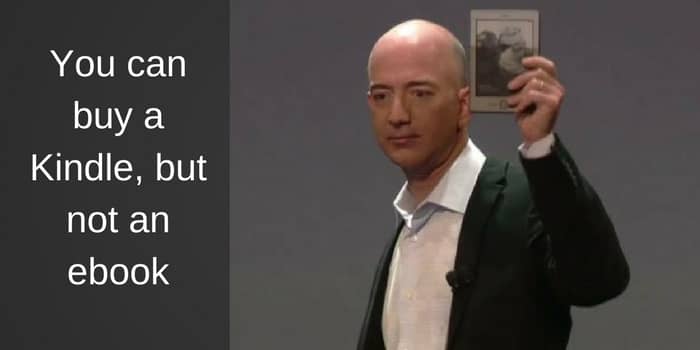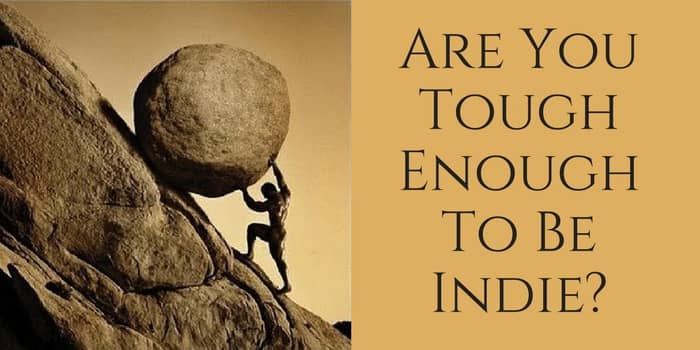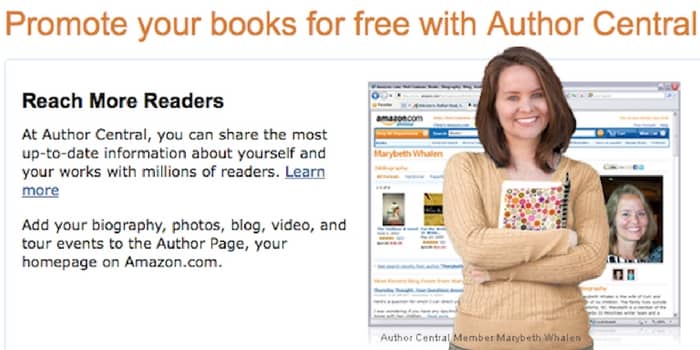
So, do you own the ebook you just bought? Probably not.
What do you really own when it comes to technology? Well, from this story about a Kindle owner having her Kindle wiped clean by Amazon, and her account closed, it would seem the answer is very little.
The disturbing part of the story is that so far Amazon has yet to explain why this was done, other than that it was for as yet unspecified violations to its terms of service.
Obviously, though, this example makes it perfectly clear that when you buy an ebook from Amazon, you don’t really buy it. You borrow it.
I just did a check to make sure, and yes, when you select an ebook from the Amazon Kindle Store it says, ‘Buy Now With 1-Click’. Well, that can’t be true. Anything that can be taken back without warning is not really bought, is it?
I don’t want to go into the ins and outs of this particular case of a wiped Kindle, but it does make one wonder about what we own and what we don’t own when it comes to technology.
I have two iPads and use one for work and one at home. Could they be wiped remotely if I unwittingly break Apple’s Terms of Service? Perhaps this could be the case with programs I have purchased for my laptop.
The real problem as I see it is with these ‘Terms of Service’ agreements, which we all read before agreeing to, right? Then even if we do actually read them and agree, they can be changed at any time without notice. The Amazon Kindle Terms of Use agreement you enter when you use a Kindle is well worth a read if you haven’t bothered before.
Oh, and it was updated on 6th September. Of course, you are never notified about these updates, so good luck in knowing if you are breaking the (new) rules.
The most telling line in this agreement is this one:
Changes to Service. We may modify, suspend, or discontinue the Service, in whole or in part, at any time.
So have fun reading your ‘borrowed’ Kindle ebooks. While Amazon let you. I’m off to grab my ‘fully owned’ paperback copy of Hitchhiker’s Guide To The Galaxy. It’s a bit tattered, but it’s mine!




The phrase “Engage in a conditional license, based on compliance with our twenty page terms of service, with one click” was deemed too unwieldy to put on a button.
I think that a lot of us will start to offer readers better terms as we set up storefronts on our own blogs. I could’nt care less if a reader bought their eReader or tablet in one country to use in another or if they loan it to a friend or family member. I have no problem with a reader ‘owning’ a digital copy of my book.
It would be great if author stores worked Andrew. But unfortunately, they just don’t stand a chance of getting enough traffic to work, as book and ebook buyers really now have the ‘habit’ of using large retailers. But yes, I don’t agree with DRM either and would happily have my books free of it.
But I think the more pressing point of my post though is that Kindle can wipe your Kindle device clean, no matter what you have loaded on it. So in my case I would lose a lot of my own material I have converted to Kindle format for teaching purposes.
It’s a scary world.
For your own material, you might want to download Calibre. You can convert files on it, store them on your computer, and read them on Calibre. And they don’t steal them from you. LOL
Amazon will never, ever give a direct answer to any questions about their actions. They always allude to some violation of their TOS which is written in such a way that it can be interpreted to mean anything Amazon wants it to mean. It has been apparent to me for a while that Amazon is out of control and answerable to no-one.
I have to agree Rick. That’s one of the reasons why I’m now moving all my books out of KDP Select. Amazon promised a lot at the beginning of KDP Select and then took away most of the benefits quite suddenly in May without even a mention. Then when I asked, I got the usual ‘copy and paste’ rubbish answer from them. They really don’t play fair at all.
Wow, this is shocking. I was under the assumption, as I’m sure many people are, that you OWN the file copy of the book once you purchase it as well as any apps, music, etc. And I wonder what the person did that warranted that their entire device be wiped out.
I’m not exactly sure Melissa, but from what I’ve read it would seem that the problem was with territorial rights. In other words, the owner of this particular Kindle was purchasing ebooks outside of the designated region for her device. What ever that all means!
As a follow-up to the wiped Kindle story, the following has been reported today.
Update: And since writing this it seems Amazon has restored her account and all her books. However, they haven’t corresponded with Linn at all, so she still has no idea what happened and why. This could happen to anyone, and I fear it’s only because of the coverage Linn’s situation got that Amazon took notice.
I quite agree with you about the pleasure that can be gained from that nice, tattered paperback copy of a book you love! I could never feel the same about a Kindle version, and now I have another reason to reject ebooks whenever possible. I would never publish my own books without a print edition, and I always do that one first. That way, whatever copies do come into existence have a life of their own – nobody can take them away from their owner and they can go on to be recycled to other readers – at yard sales, Goodwill, used book stores, or simply found lying on a park bench. And two copies of the book sit on the shelves of the Copyright Office!
One of the most pleasing stories I have about paperbacks Lorinda, is being told of someone on a Delhi subway reading one of my books. You don’t get that wonderful situation with ebooks.
A great informative article (as usual) Derek! What a nightmare for authors who only publish digital books. Amazon’s policies are so wishy-washy nobody knows where they stand anymore. I’ve posted a link to an article I read a few years ago about a student taking legal action against Amazon for removing his digital copy of 1984. Not sure if it will work so may have to copy and paste.
You’re right Michelle. Amazon’s ‘Terms of Use’ are so unclear and worse, open to change at anytime. It’s very hard playing any game when you don’t know what the rules are. Even then, if you do think you know, they will probably change without you knowing. Hardly fair at all.
I don’t like having to delete comments from my blog. But for those who think it is a forum for ‘plugging’ your books, I’m very sorry, it isn’t. There is a link facility to promote your latest blog post. Isn’t that enough?
While this is definitely a sad story, I think it might be worth pointing out that this is more a problem with the actual hardware Kindle than the phenomenon ebook itself. I’m not so sure if Amazon would have been able to even delete everything from the Kindle iphone-app, but they would definitely not have been able to do anything about Kindle books I buy and then transfer on my iphone (or computer or whatever can read a -mobi file) to a different app that reads them.
The problem here is people using hardware from a supplier of software. Linking those two things, particularly via a synchronising service supplied by the supplier of the software and the hardware itself makes it impossible to control what you bought.
But if you back up your files somewhere else, you’re absolutely safe. (And yes, you can print them, too!). ;)
Hi Derek,
I do apologize – I was actually trying to show that there are e-book sites that offer more than one type of file that you can download – and yes, maybe sneaking in a ‘plug’. I won’t do it again, I promise.
But, it is worth it going to a site like Smashwords because there are many different versions that you can download – for books that are free or paid for – and you can keep them on your ‘shelf’ without anyone directing or controlling you otherwise.
Have a great day, and thank you for highlighting this issue,
CC
Oh, and I must apologize again profusely because I did not realize that the website link was attached to the name. So I do thank you for that!!
I am new to all this… so bear with me. :-)
Live and learn as they say.
I see that you have written quite a few books – I will definitely check them out! :-)
live long, laugh hard…
Thanks for understanding. But be assured, your comments on the topics of posts on the blog are indeed welcome.
I was actually introduced to this story by a friend and even reading about it again, I still have this surreal feeling of needing to go over to my bookshelf and hug every single book I have there.
I also feel the need to back up the entire contents of my Kindle.The thing is, with the amount of money I spent on them… I shouldn’t have to be forced to back them up on any kind of external disk.
Since I don’t have a Kindle but was seriously thinking of gettingo one: I have a question.
once books are loaded on your kindle can you transfer them on to your computer or external harddrive so that something like that could not happen???
Its sure scary knowing how many books and music and such are bought and downloaded that they can take it from you at any time. Maybe they should make their service “a library” and you pay less but only get to keep it 60 days??
How often the big companies forget about the little who helped them get started?
No, we don’t own DRMed e-books, certainly not those on a proprietary DRM device like a Kindle,
The real crime is that our governments have consistently allowed purveyors of digital media and devices to deliberately mislead the public by using the word “buy” when they mean “license.”. A license is generally more restrictive then a rental, because the licensee needs to follow the rules set by the licensor. When you license something, you are purchasing the right to use it in a particular way, but you are not buying the thing… in this case the eBook.
Licenses, like copyright, used to be contracts between companies. Ordinary people didn’t need to worry about these things. Licensing is a perfectly reasonable transaction, but only if both parties understand what they are doing. And in today’s digital world, we don’t
The licensee (in this case the reader) pays for the privilege of using the thing (in this case both the e-book *and* the Kindle) in ways allowed by the Licensor, (in this case, Amazon). If the licensee fails to abide by the terms of the “contact” ~ also known as “Terms of Service” (TOS) or “End User License Agreement” (EULA) ~ they’ve broken the contract, so it is no longer valid. This is why Amazon can legally reach into the reader’s device and remove the book, or the account.
DRM is “Digital Restrictions Management” which is the software that allows the company to enforce the terms of the agreement. When they unilaterally determine the terms of the agreement including the power to unilaterally alter the agreement any time they like without even telling readers, it’s rather like doing business with Darth Vader. Any device that plugs into the Internet is vulnerable to any company doing such a thing. Even if you back up your ebooks on another device, it is possible they may at some point be able to remove those too.
If self publishing authors wish to protect our readers from the whims of an Amazon, we can do so by:
(a) choosing an appropriate Creative Commons License for our e-books.
(b) choosing to publish DRM free ebooks,
(c) providing an alternate place where our readers can download a DRM free epub version if our books … perhaps on our own website or a 3rd party site like eBook.bike or Smashwords.
…Until Someone Dares to Sue Amazon – Because What They Do is Against the Law!
Will it help to NOT download it to a Kindle, and instead to an ipad or laptop? I don’t think so.